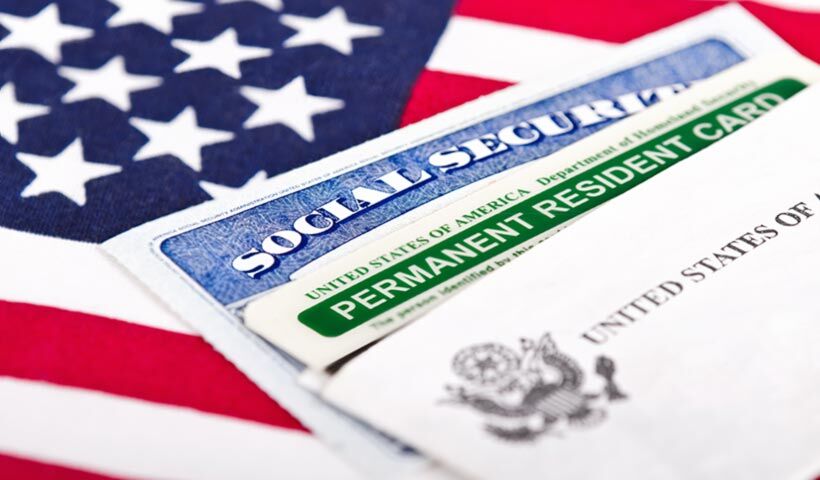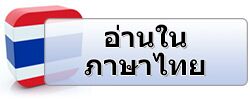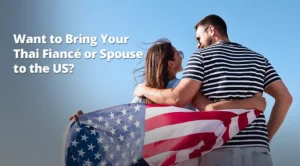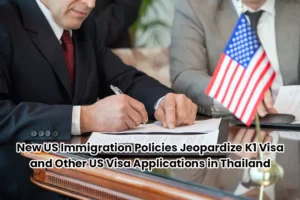If you’re a US citizen married to a Thai spouse hoping to bring them back to the States, you probably don’t want your new life stalled by a long visa application process. The US K3 Visa was created to reduce this time, allowing foreign spouses to join their partners in the US while waiting for their permanent residency to be processed.
On this page is everything you need to know about the US K3 Visa, how to apply for one, and the roles you, the US citizen sponsor, and your Thai spouse will have to take on.
What is the US K3 Visa and who is it for?
The US K3 Visa is a visa that allows the foreign spouse of a US citizen to enter the United States to apply for Adjustment of Status. They can enjoy the benefits of living in America while they await processing to get lawful permanent residency in the US.
If your spouse has children, they can apply for the US K4 Visa, which will allow them to travel with your spouse as the US K3 Visa holder, to the US. However, the US K4 Visa is only issued to unmarried children under 21 years of age.
What are the benefits of the US K3 Visa?
We’ve covered the basics of what the US K3 Visa is, now let’s go into the specifics of what the visa offers. Here’s a list of what your spouse can do with the US K3 Visa:
- Live in the US with you while waiting for their immigrant visa approval
- Apply for work authorization (Form I-765), which will allow them to work legally in the US
- Apply for Adjustment of Status to obtain permanent residency in the US
- Temporarily travel outside the US and re-enter using their existing visa
However, these benefits are only available as long as they meet the conditions of their visa. Your Thai spouse cannot stay permanently in the US without completing the Adjustment of Status process. If you divorce your spouse before they obtain permanent residency, their US K3 Visa benefits will automatically terminate after 30 days.
What are the eligibility requirements for the US K3 Visa?
There are two roles when applying for the US K3 Visa, the first being the sponsor, and the second being the applicant. Here are what the roles entail:
- Sponsor (US Citizen): As the US citizen spouse, you’re responsible for filing the initial visa petitions on behalf of your foreign spouse. This includes submitting the I-130 Petition for Alien Relative to US Citizenship and Immigration Services (USCIS), as well as Form I-129F.
- Applicant (Foreign Spouse): The foreign spouse is the one who will apply for the US K3 Visa once you, the US sponsor, have filed the necessary petitions.
In terms of the eligibility requirement, you, the sponsor, must:
- Be a US citizen
- Be legally married to your foreign spouse (common law and de facto marriages do not qualify)
- Your income must meet or exceed the Federal Poverty Guidelines (FPG)
What are the requirements for the US K3 Visa application from Thailand?
Now that you know each of your roles and what the eligibility requirements are, let’s dive into what documents your spouse will need to get together to file the US K3 Visa application from Thailand.
- A completed Form DS-160
- A passport with at least 6 months of validity remaining beyond your spouse’s intended stay in the US
- 2 passport-style photographs
- Civil documents including:
- Birth certificate
- Marriage certificate
- Divorce or death certificate(s) of any previous spouses
- Police clearance certificate
- Medical examination
- Evidence of relationship with you, the sponsor, such as photos and affidavits
Here’s the general set of documents that you as the sponsor must provide:
- Evidence of your US citizenship such as your passport or birth certificate
- 1 passport-style photograph
- Civil documents including:
- Marriage certificate
- Divorce or death certificate(s) of any previous spouses
Note that any documents in the Thai language will first need to be notarized and translated.
What is the US K3 Visa application process from Thailand?
The entire application process can take 24 to 28 months to complete, so it would be best if you apply for it as soon as possible once you’ve settled on plans to move to the US together. With that being said, the application process is as follows:
- You, the sponsor, will have to file the I-139 Petition for Alien Relative with the USCIS. After receiving the notice from the USCIS that they’ve received your petition, you will then need to submit Form I-129F.
- Your spouse will need to complete the DS-160 form and submit it along with all the necessary documents online to lodge their US K3 Visa application.
- Once the paperwork is processed, your spouse will need to attend an interview at the US Embassy in Bangkok. If they pass, they’ll be issued the US K3 Visa.
Professional Assistance With Your K3 Visa Application
If you want to learn more about the US K3 Visa, you can visit Siam Legal’s page on the US K3 Visa. But if you’re ready to jump right into starting the next chapter of your life together as a family in the US the quick and easy way, contact Siam Legal now and speak to our experienced US Visa advisors to start your consultation.
Frequently Asked Questions about the US K3 Visa
Can my spouse work in the US with a K-3 Visa?
Yes, after entering the US with a K3 Visa, your spouse can apply for work authorization by filing Form I-765. Once that is approved, your spouse will be able to work in the US.
How long can my spouse stay in the US with a K3 Visa?
The US K3 Visa is valid for two years, but your spouse can apply for Adjustment of Status to stay permanently. If for some reason they do not achieve lawful permanent resident status in the given two years, an extension of the US K3 visa is possible.
Can my step-children travel with my spouse on a US K3 Visa?
No, but they can apply for the US K4 Visa, which allows children under 21 to accompany their biological parent to the US. If you legally adopt these children and get them US citizenship, this will not be required.
Contact Siam Legal
 | Ken Graham US Immigration Attorney Partner, Siam Legal International |
 | Natdaphon Luengsawang Senior US Visa Consultant Siam Legal International |
LIVE SUPPORT
 CALLCall (702) 799 9719 |  CHATChat with our representative | |
| From US: Sunday – Friday 5:00 PM – 7:00 AM (New York time) 2:00 PM – 4:00 AM (Los Angeles time) From Thailand: Monday – Friday | ||








































